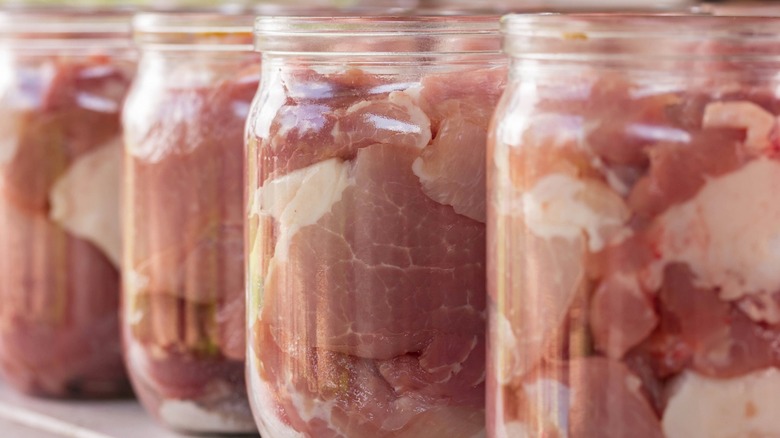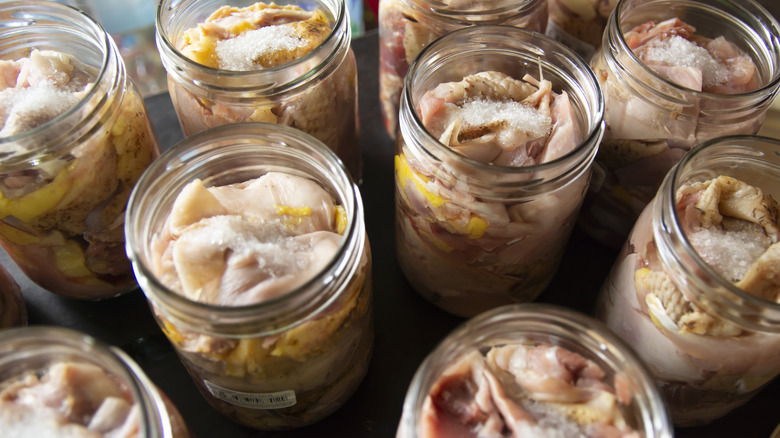Turns Out, Canned Raw Meat Isn't A Total Nightmare
Although it sounds like a culinary faux pas, homemade canned meat is made with whole, healthy ingredients that rival what you can get at the store, with some added benefits. It just takes a little time, energy, and a pressure canner.
Canning raw meat helps preserve your favorite animal proteins for long periods of time, helping eliminate unnecessary food waste. When canned correctly, the flavor, texture, and aroma of your favorite meat should still be intact. Canned meat is shelf-stable, which also helps free up space in your fridge. Plus, even if you lose power at your home, you can still enjoy a high-protein meal thanks to your canned meat. The process might be time-consuming, but it might not be the nightmare you thought it was.
Although many canning enthusiasts might suggest browning your meat ahead of time, it's not necessary. This is because the meat will cook during the canning process, which will heat your jars to at least 240 degrees. The meat is then perfectly safe to consume after canning — even if you put it in your jar raw. Just remember — always store your canned meat in a cool, dry place after canning.
A few tips for canning safety
Although it may sound like something only an expert could accomplish, making canned meat isn't as hard as it seems. All you need is a pressure canner, a Mason jar, meat, salt, and some free time. When canning raw meat like beef, pork, or chicken, add your meat and one teaspoon of salt per pint to the jar, leaving at least one inch of headspace at the top. Once you've packed your meat into the jar, wipe the rim before closing it up to ensure it's sealed airtight. Once you've closed the lid, that's it — you're ready to can!
@chaoticmomma242610 It cut off at the end, ill do a part 2 #canning #canningtiktok #pressurecanning #canningmeat
Although it's a fairly swift experience, there are some simple rules you should always follow to ensure that your meat is safe to eat after canning. If you're canning meat in a quart-sized jar, you'll want to process the meat for 10-15 minutes longer than you would when using a pint-sized jar, according to Clemson University. When you're using a dial-gauge pressure canner instead of a weighted pressure canner, you'll want to add one or two more pounds of weight to the jars. Additionally, the weight used to pressurize the meat depends on the altitude you're processing it at — altitudes above 2,000 feet require a little more weight for canning than those under 2,000 feet.
Follow these simple guidelines and you'll have long-lasting, great-tasting canned meat that anyone can enjoy.

